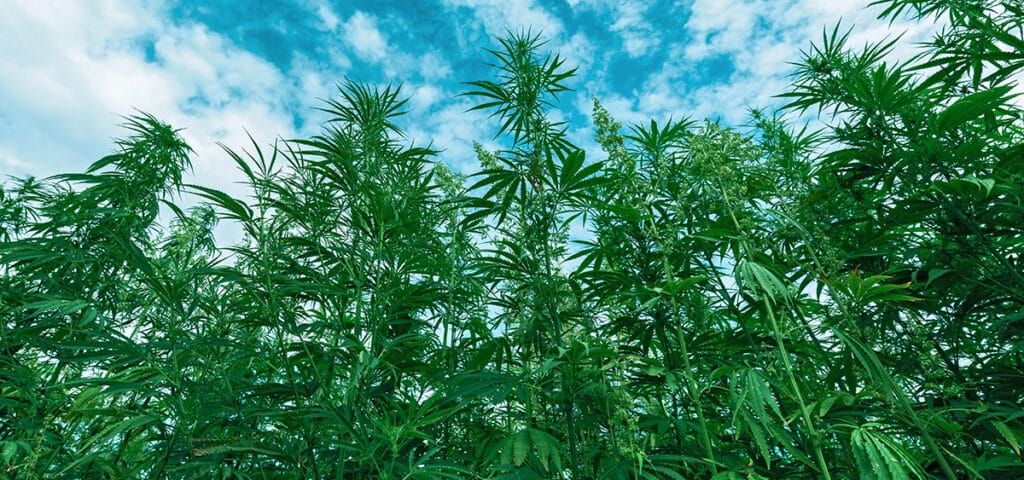The New York Senate’s recent budget approval allocates $128 million to aid the state’s struggling cannabis industry, introducing financial support for farmers and tax adjustments amidst criticism over the slow rollout of the market.
New York Senate Budget Includes $128M to Support Cannabis Farmers

Cultivated industrial hemp farm field, Cannabis sativa plant species grown for use of its derived products
Full story continued below.
Advertisement
The New York Senate last week approved a one-house budget that includes $128 million to support the state’s cannabis industry. The budget includes $60 million for cannabis farmer loans, $40 million for grants through a new Cannabis Farmer Relief Fund, and $28 million for refundable tax credits for cannabis farmers who lost money due to the state’s slow market rollout.
The budget also includes a proposal backed by Gov. Kathy Hochul (D) to replace the state’s potency tax on cannabis products with the phase-in of a permanent rate for the new wholesale tax and a repeal of the tax on medical cannabis products.
On the Senate floor, state Sen. George Borrello (R) said that he thinks lawmakers agree that the state’s cannabis industry rollout “has been an abject failure.”
“We are now three years into where we have passed the legalization of recreational marijuana in New york state – three years now this month. We are now proposing a bailout for pot farmers of $128 million. … Somehow New York state has managed to screw up pot. I don’t know how that happens, but we did.” — Borrello via The Post-Journal
Last year Hochul vetoed a bill that would have allowed New York cannabis farmers to sell directly to tribal retailers – many of which began operating shortly after the passage of the state law. In her veto message, Hochul said the proposal provided “too few parameters in terms of sales to the Tribal Nations” and “minimal overall protections for cultivators and processors or guarantees for sales in terms of quantity.” Hochul said the issues could “best be addressed through a negotiated agreement with Tribal Nations,” rather than the legislation.
Get daily news insights in your inbox. Subscribe
End